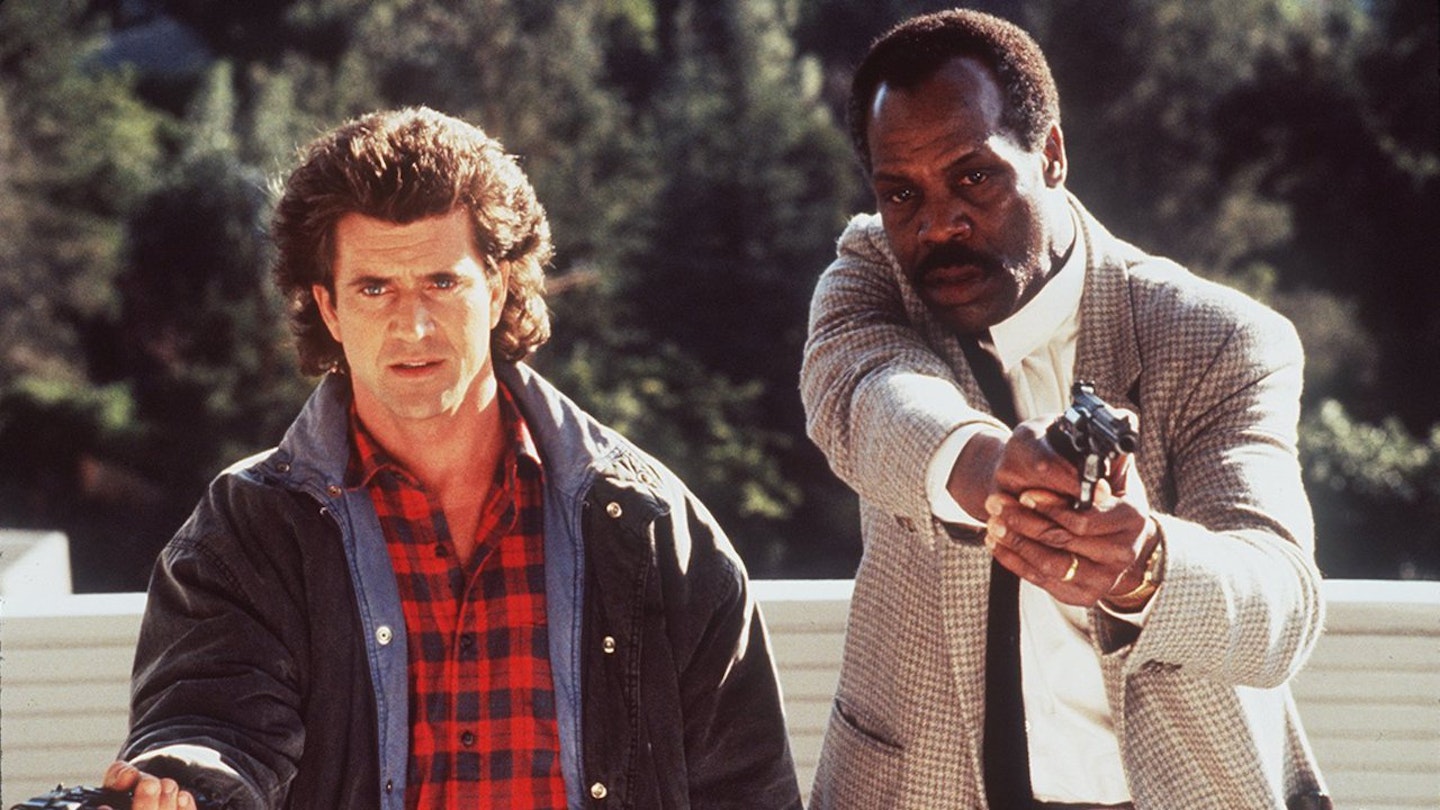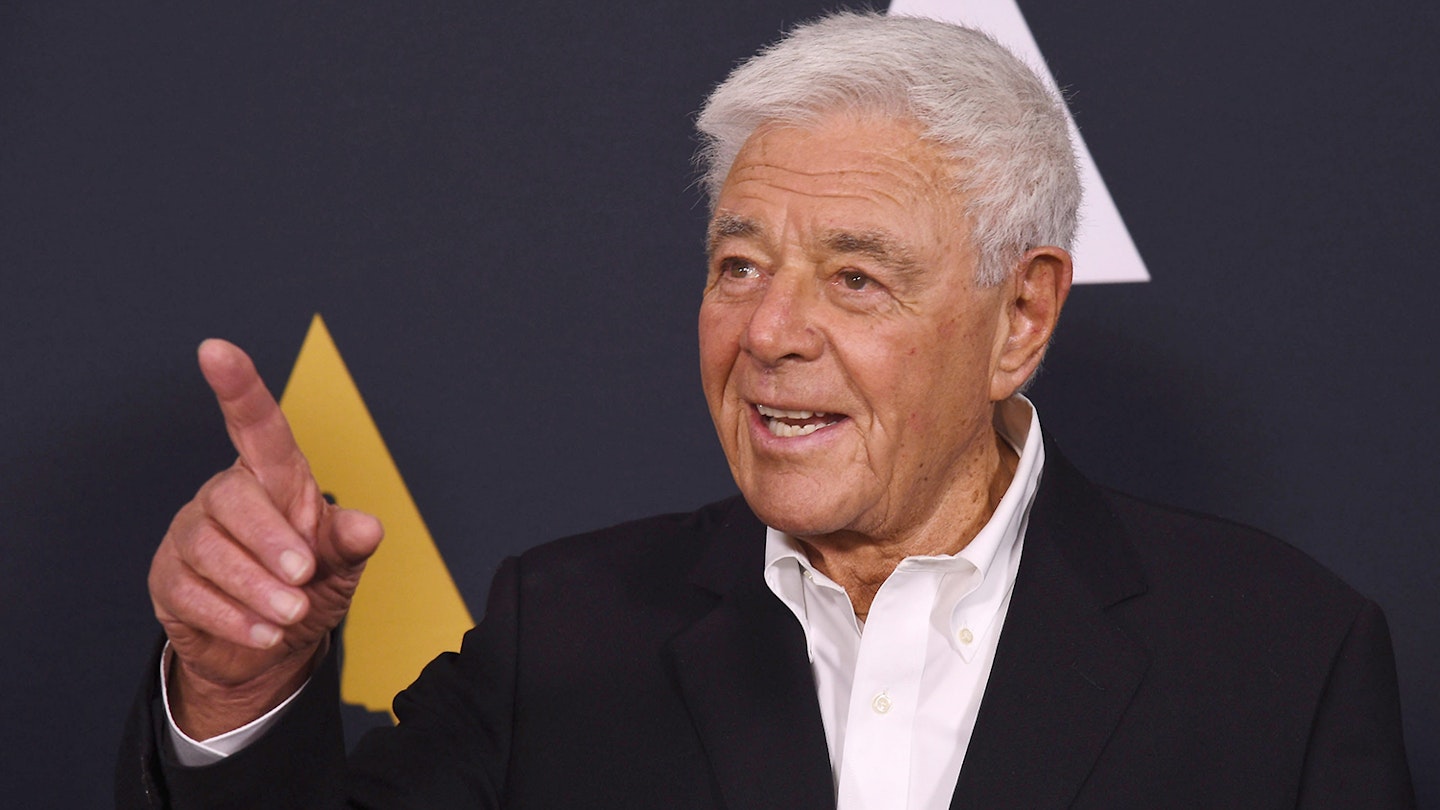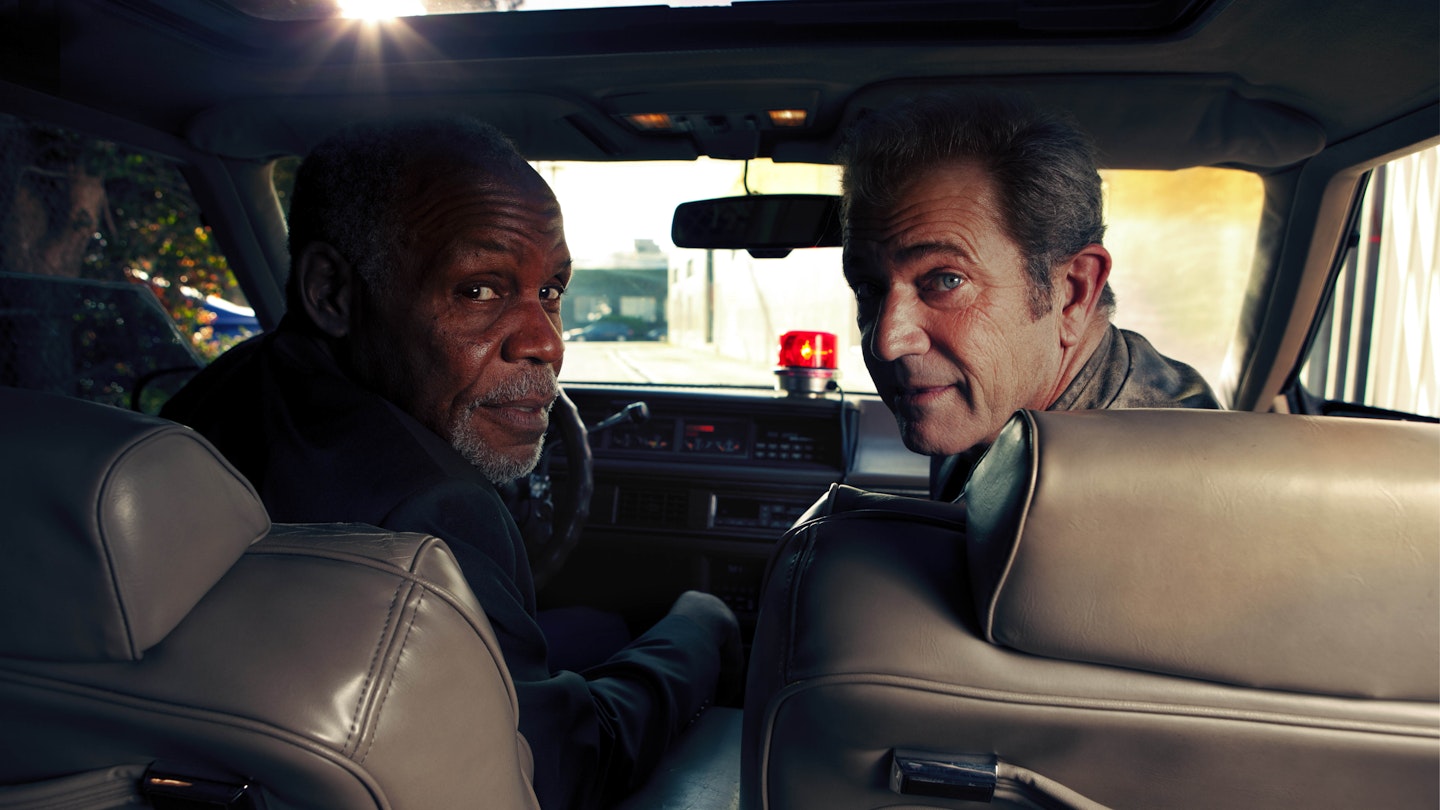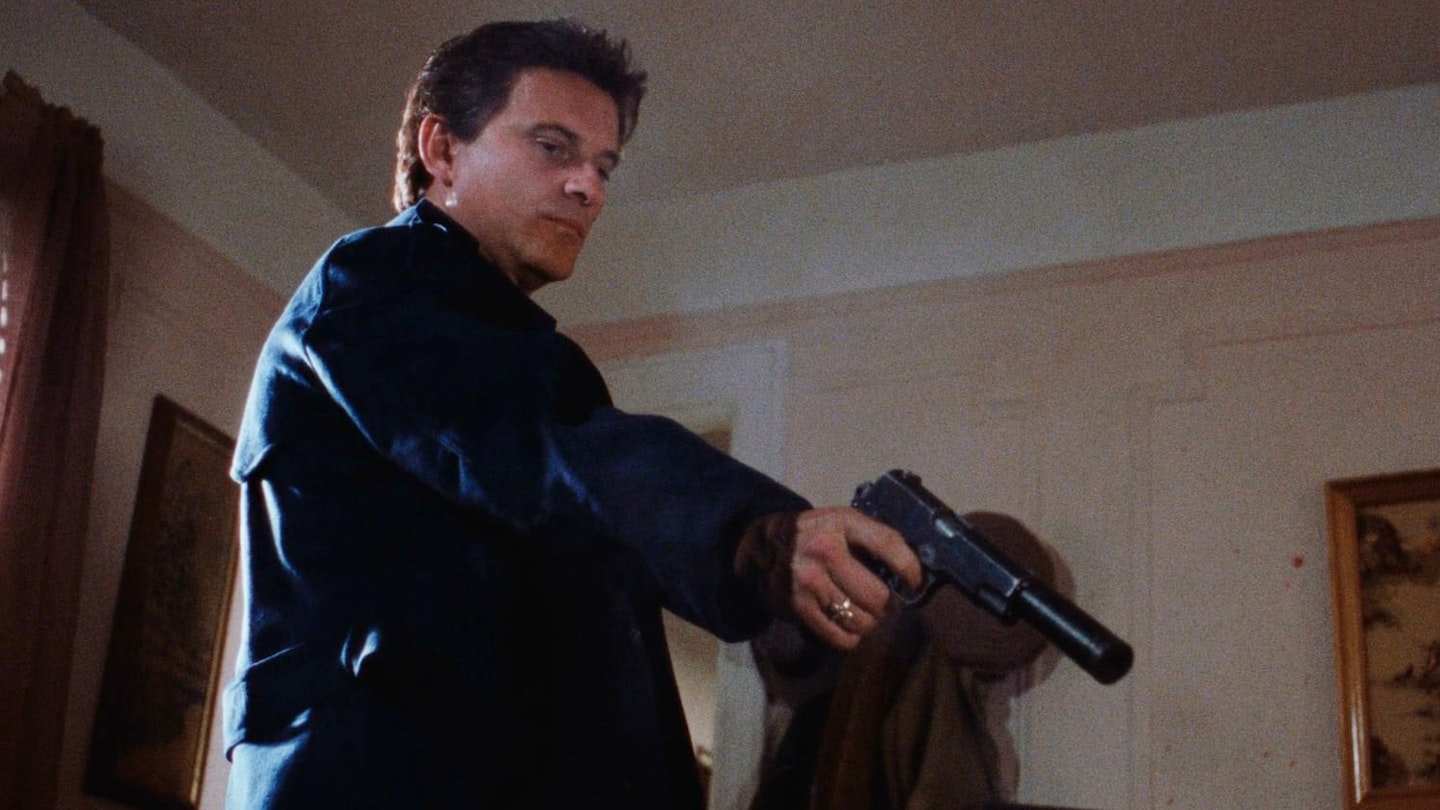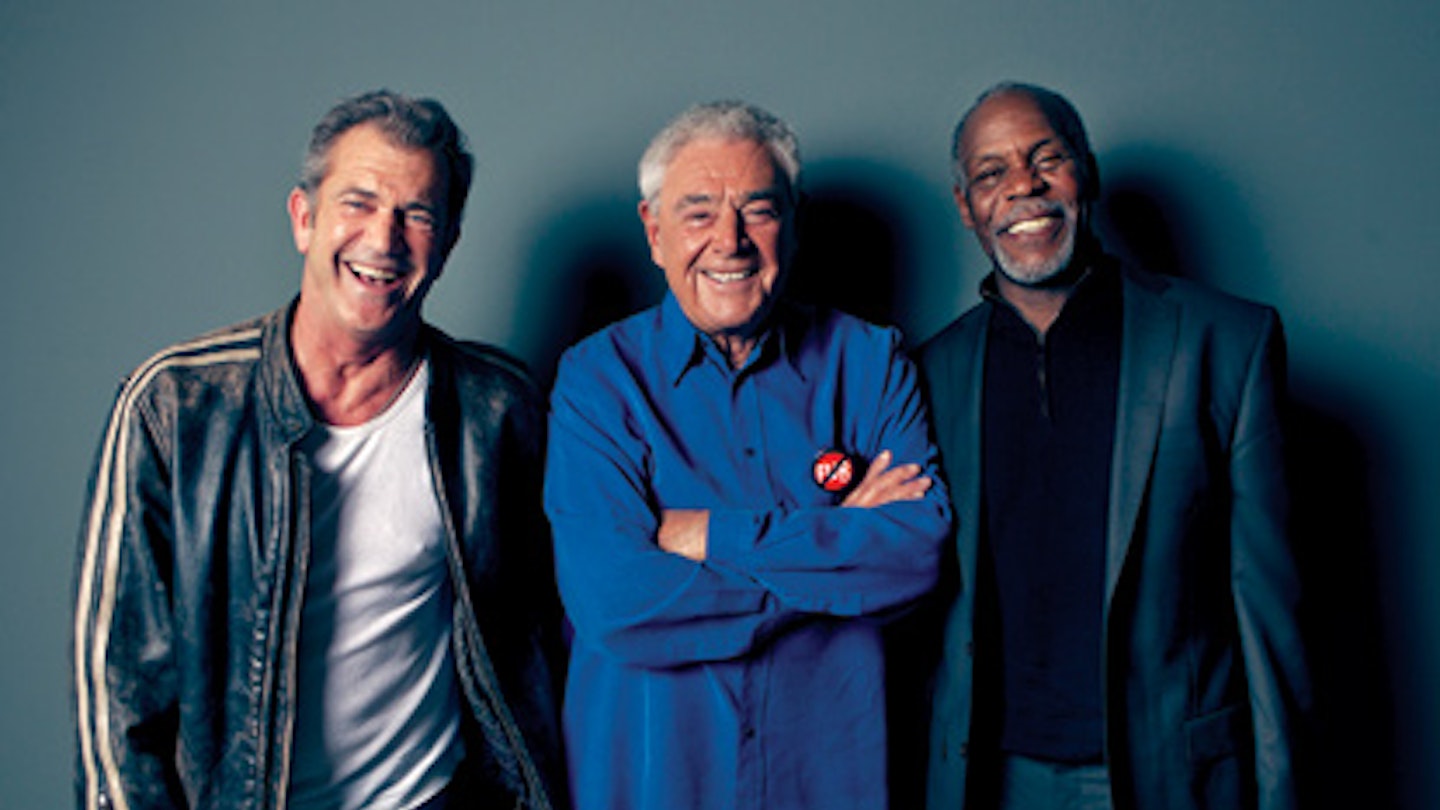In America, Licence to Kill was unfortunate enough to open after Lethal Weapon 2, which knocked it right out of the water, Timothy Dalton's James Bond seeming cold and humourless next to the warm-blooded buddyhood of cops Mel Gibson and Danny Glover. They laugh, they cry, they are both near death several times, but we know these partners will never die; they're invulnerable. Murder and mayhem, surround them, but its stylised cartoon violence, Roadrunner-style.
Many viewers not seduced by Gibson and Glover's charms may find the jacked-up gleeful mayhem hard to tolerate; several critics have raised the spectre of the effects of these ultra-nasty movies on the general populace, but surely most moviegoers know the difference between gritty realism and stylised Hollywood action.
British-born director Richard Donner (of Superman fame) sets the tone from the first frame, jumping right into a raucous high-speed car chase that knocks the wind out of you. And he never lets up: the audience knows that every lull predicts another sequence of full-tilt excitement. Scripter Jeffrey Boam (who also wrote Indiana Jones And The Last Crusade) manages to keep the plot twisting and the audience on the edge of its seat, while at the same time deepening the two characters - we actually care what happens to these guys.
While the underrated Glover really helped carry the original picture, this time Gibson is given much more to do, and he delivers: he's funny, makes credible love to a fetching Patsy Kensit, deepens his friendship with Glover, and fills in some of the details of his past. The movie's villains are Hollywood's closest answer to contemporary fascists: South African functionaries using diplomatic immunity as a cover for serious drug running. The filmmakers give character actor Joe Pesci enough screen-time to create a money-laundering snitch under Gibson/Glover's guard who is both hilariously irritating and loveable.
